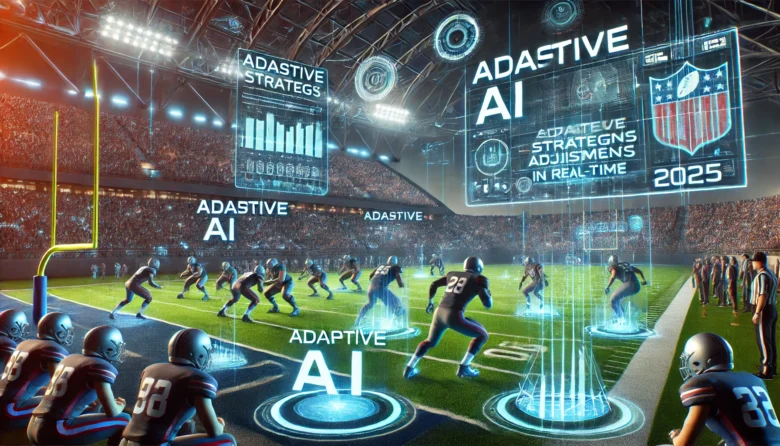As the world of college football evolves, technology is playing an increasingly vital role in shaping strategies and enhancing performance. One of the most exciting advancements in this area is adaptive AI. This blog explores the concept of adaptive AI in college football, particularly its implications for College Football 25.
Understanding Adaptive AI
Adaptive AI refers to intelligent systems that can learn from data and adjust their strategies accordingly. In college football, this means the AI can analyze gameplay, player statistics, and opponent strategies in real time, allowing coaches to make informed decisions.
Key Features of Adaptive AI College Football
- Real-Time Analysis: Adaptive AI systems can process vast amounts of data during games, providing coaches with insights that can influence play-calling and strategy adjustments.
- Player Performance Tracking: By continuously monitoring player performance, adaptive AI can suggest personalized training regimens tailored to individual strengths and weaknesses.
- Predictive Modeling: These systems can forecast potential outcomes based on historical data, helping teams make informed decisions about their game plans.
The Role of Adaptive AI in College Football 25
In College Football 25, adaptive AI plays a pivotal role. Here’s how it enhances gameplay:
Enhanced Gameplay Experience
- Dynamic Game Strategies: Coaches can utilize adaptive AI to develop strategies that evolve throughout a game, responding to opponents’ tactics in real time.
- Improved Player Development: By analyzing player data, coaches can identify areas for improvement and tailor training sessions accordingly.
Competitive Edge
Teams employing adaptive AI gain a competitive advantage by leveraging data-driven insights. This technology allows for:
- Optimized In-Game Decisions: Coaches can make quicker, more informed decisions during critical moments.
- Increased Team Cohesion: By understanding player dynamics through data analysis, teams can foster better communication and teamwork.
What Does Adaptive AI Mean in College Football 25?
When we ask “what is adaptive AI in college football 25?”, we’re referring to its transformative impact on how teams prepare for and execute games. It represents a shift towards a more analytical approach in sports, where decisions are no longer based solely on intuition but are backed by comprehensive data analysis.
Benefits of Using Adaptive AI in College Football
For Coaches
- Strategic Insights: Coaches gain access to advanced analytics that inform their strategies.
- Enhanced Game Preparation: With predictive modeling, coaches can prepare for various scenarios that may arise during games.
For Players
- Personalized Feedback: Players receive tailored performance insights that help them improve.
- Injury Prevention: By analyzing physical exertion and stress levels, adaptive AI can help prevent injuries through better training regimens.
Best Practices for Implementing Adaptive AI
To effectively integrate adaptive AI into college football programs, consider the following best practices:
- Data Collection: Ensure robust systems are in place for collecting relevant data from games and practices.
- Training Staff: Equip coaching staff with the necessary skills to interpret data analytics effectively.
- Continuous Improvement: Regularly update the algorithms used by adaptive AI systems to reflect changes in gameplay and player performance.
The Future of Adaptive AI College Football
As technology advances, the potential applications of adaptive AI in college football will likely expand. Future developments may include:
- Virtual Reality Training: Combining adaptive AI with VR could revolutionize player training by simulating game scenarios.
- Enhanced Fan Engagement: Data-driven insights could be shared with fans, enhancing their viewing experience through interactive features.
Conclusion
Adaptive AI is set to redefine the landscape of college football by offering teams unprecedented insights into gameplay and player performance. As we look ahead to College Football 25 and beyond, embracing this technology will be crucial for teams aiming to stay competitive.















Leave a Reply